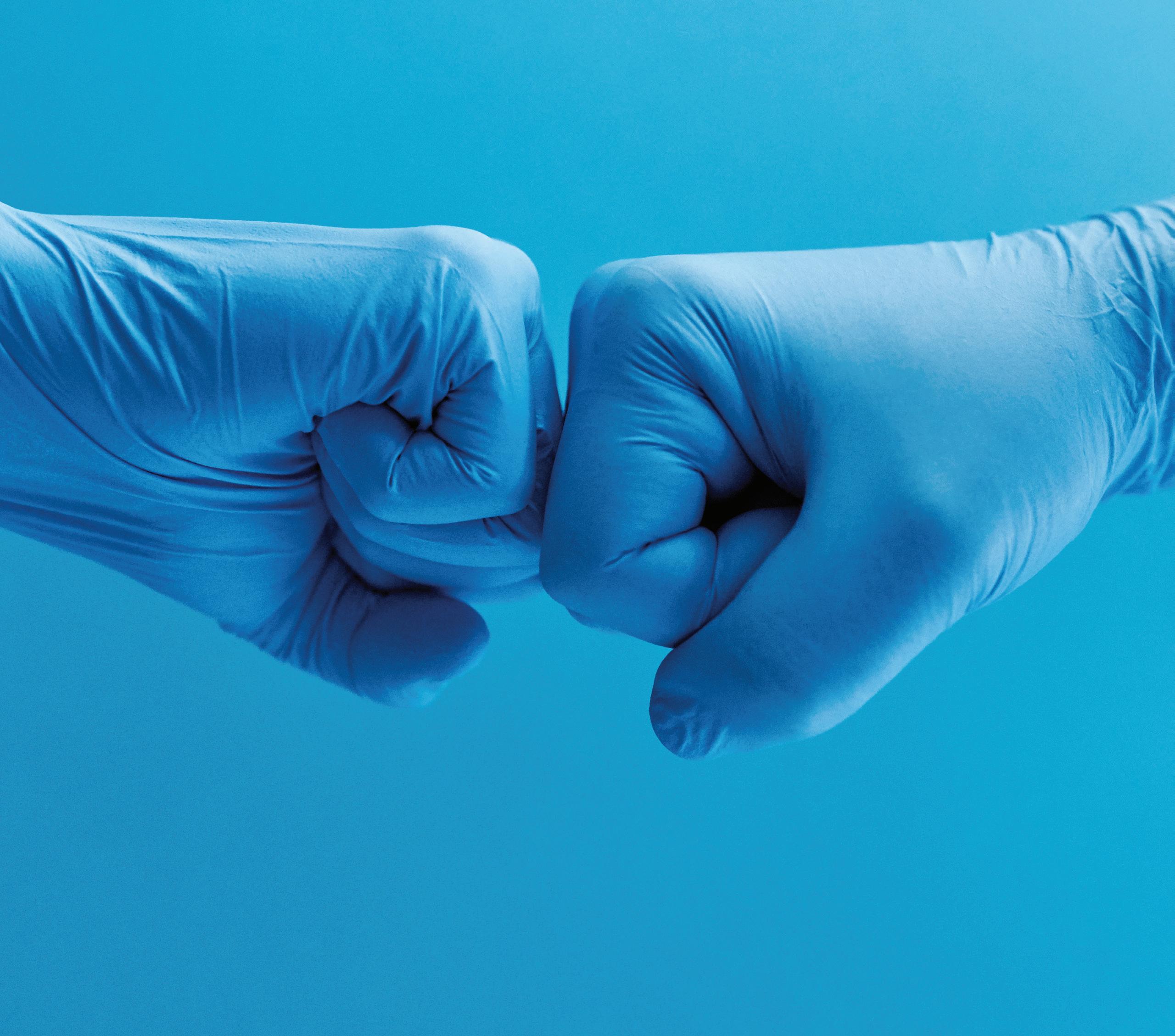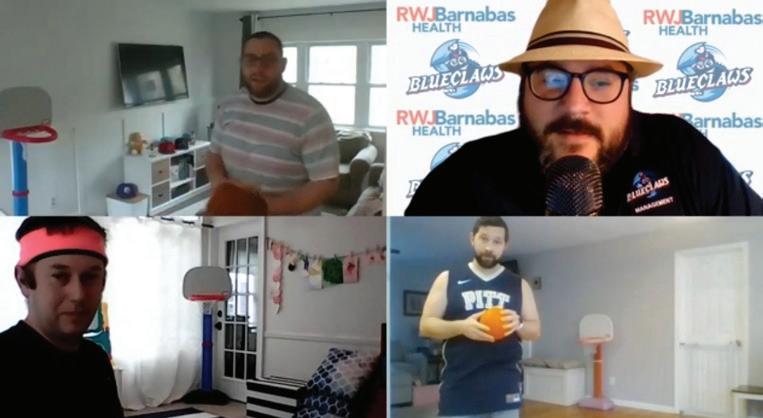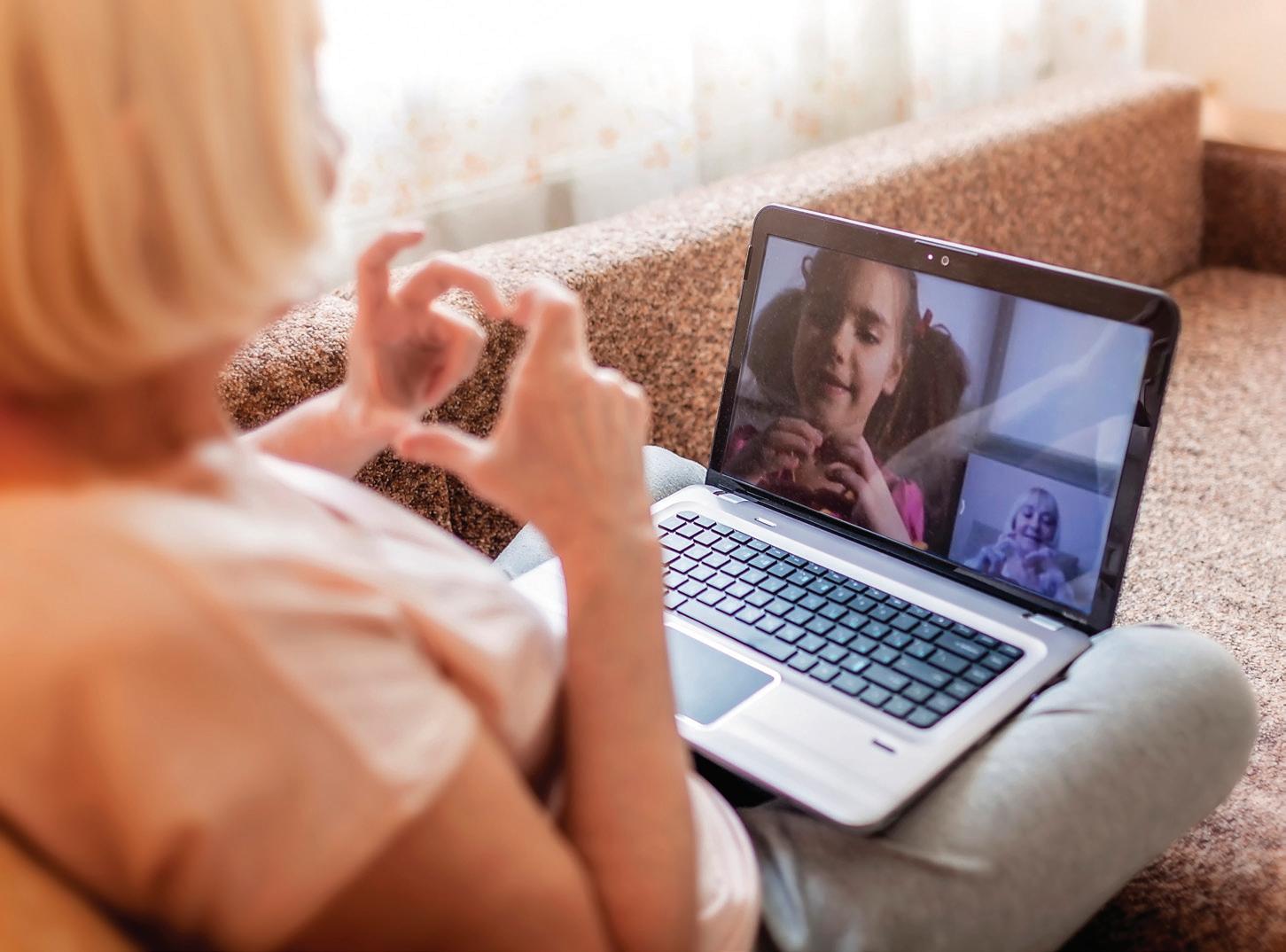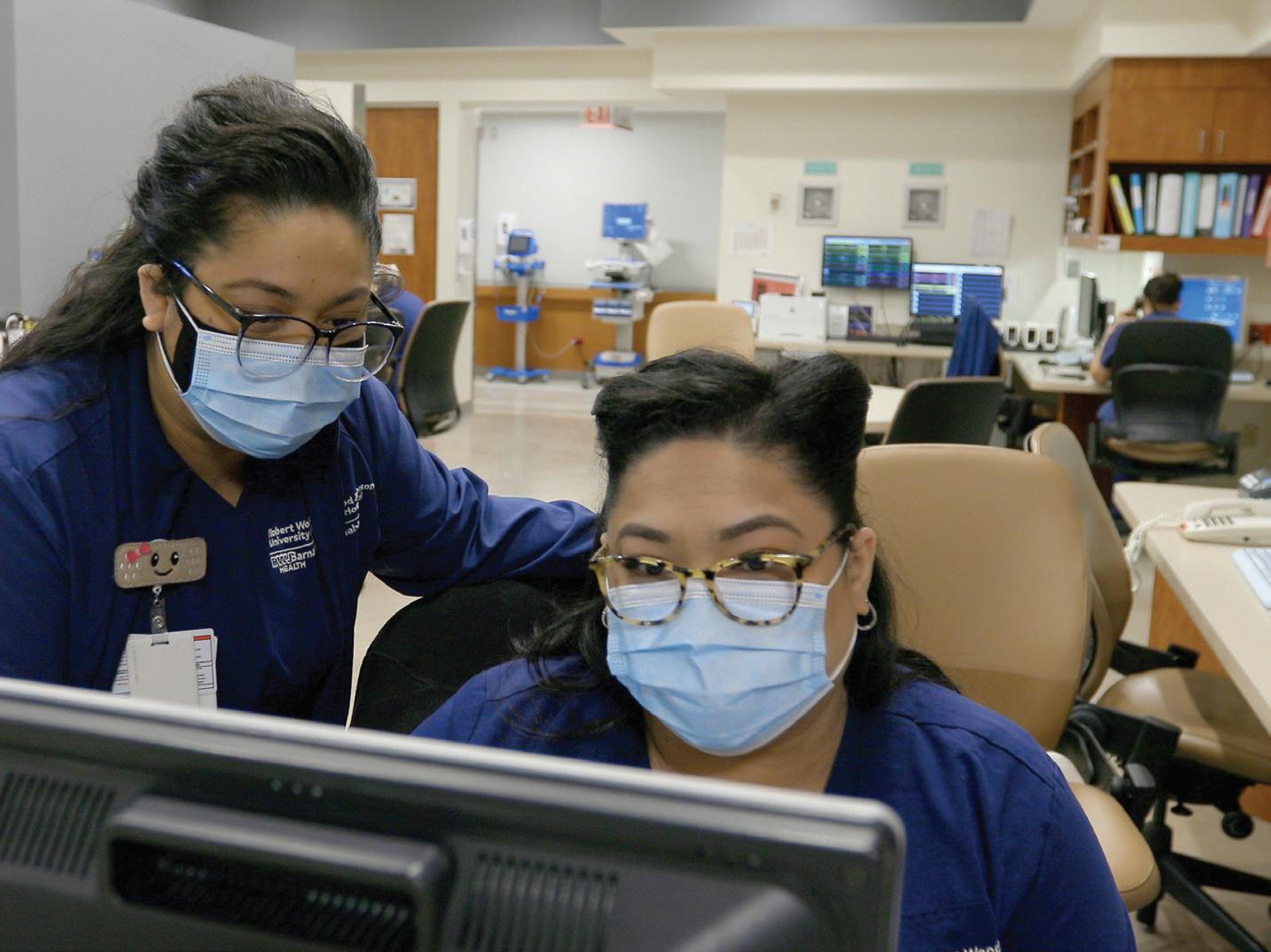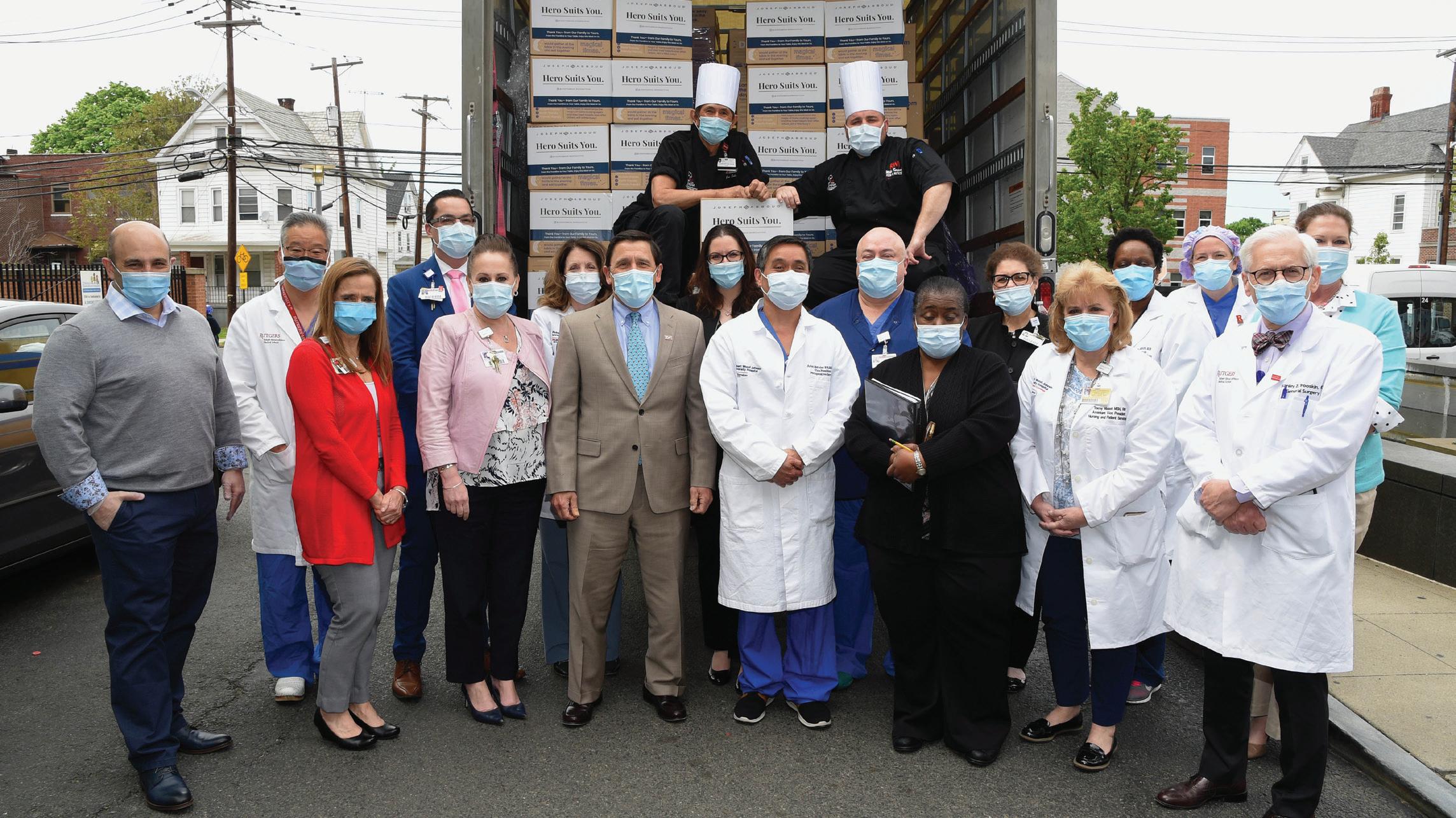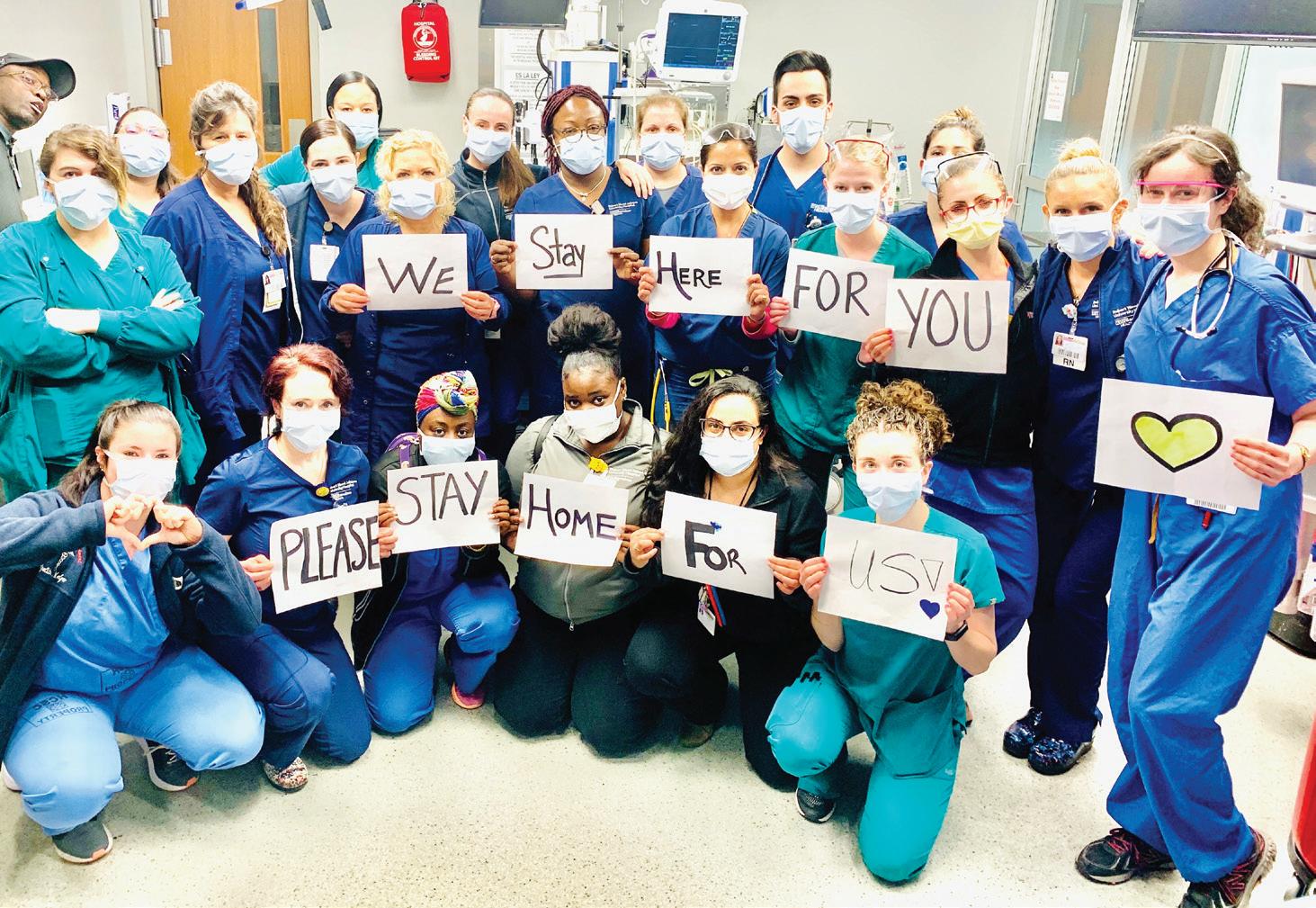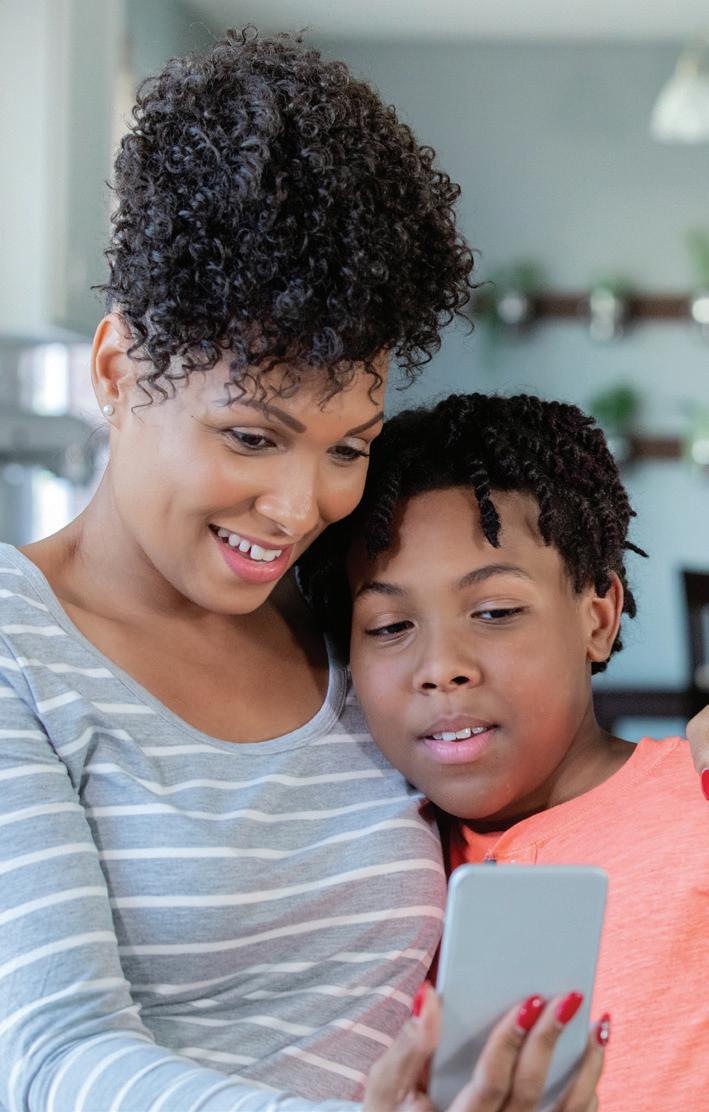NEW WAYS TO LEAD IN
CANCER TREATMENT COLLABORATION AND INNOVATION ARE DRIVING A NEW ERA IN ONCOLOGY.
E
RWJBarnabas Health, together with Rutgers Cancer Institute of New Jersey—the state’s only NCI-Designated Comprehensive Cancer Center— provides close-to-home access to the latest treatment options. For more information, call 844.CANCERNJ or visit www.rwjbh.org/beatcancer.
very week, up to 40 of New Jersey’s top cancer experts virtually convene as part of the new N.J. Statewide Cancer Programs Collaboration—a unique approach initiated and implemented by Steven K. Libutti, MD, Director, Rutgers Cancer Institute of New Jersey, and Senior Vice President, Oncology Services, RWJBarnabas Health. “As the state’s only NCI-Designated Comprehensive Cancer Center, we felt that it was important that we communicate with other cancer programs in New Jersey during the COVID-19 pandemic,” says Dr. Libutti. “We felt we could learn quite a bit from hearing about other experiences, and that each program shouldn’t have to go through the learning curve on its own.” In addition to Rutgers Cancer Institute and RWJBarnabas Health, all major cancer programs in the state participate, including those at Atlantic Health System; Capital Health Cancer Center; MD Anderson Cancer Center at Cooper; John Theurer Cancer Center at Hackensack University Medical Center, Hackensack Meridian Health; Hunterdon Healthcare; Inspira Health Network; Regional Cancer Care Associates; Saint Peter’s Healthcare System; St. Luke’s University Health Network, Warren; Summit Medical Group; Trinitas Comprehensive Cancer Center; and Penn Medicine|Virtua Cancer Program.
MANY MINDS Subgroups in the areas of medical oncology, radiation oncology, surgical oncology and operations meet throughout the week to discuss topics relevant to their programs. On Friday mornings, all participants join a call to exchange information and insights. “We’ve come up with plans for how to safely continue and then augment surgical oncology and other care during the pandemic,” says Dr. Libutti. “What are the right testing regimens to use? How do you open up surgery facilities safely to protect patients and providers from exposure? Which treatment regimens can be delivered at home, and which can be delayed without bad consequences for patients? “Oncology itself is a very collaborative field, because so many modalities are used to treat a cancer patient in a very coordinated way,” continues Dr. Libutti. “It’s not a huge leap for us to extend collaborations beyond the borders of health systems.” Patients in New Jersey will reap the benefits. “Our state sees 50,000 new diagnoses and 16,000 deaths from cancer every year,” says Dr. Libutti. “We’re going to leverage the strengths of STEVEN K. LIBUTTI, MD each program to work together to help cancer patients.” Healthy Together
| 14 |
VIRTUAL CARE FOR CANCER PATIENTS The Rutgers Cancer Institute of New Jersey, in partnership with RWJBarnabas Health (RWJBH), had already begun a pilot program for cancer consultations via video. The pandemic accelerated the expansion of the plan to almost all of the groups’ cancer specialists. The specialists are using a secure platform, which is private and simple for patients to access. In addition to convenience, telemedicine has a number of benefits for cancer patients: • The elimination of potential exposure for patients with compromised immune systems • The ability to have several specialists virtually present at the meeting • The capacity to have geographically distant family members at the meeting • The means to effectively share information with patients. “As I’m talking to a patient, I can show a picture of, for example, lymph nodes, and also type out instructions on the screen and then email these to the patient,” says Andrew M. Evens, DO, MSc, Associate Director for Clinical Services and Director, Lymphoma Program, Rutgers Cancer Institute, and Medical Director, Oncology Service Line, RWJBH. “As we always say, ‘Cancer doesn’t travel well,’” explains Dr. Evens. “Telemedicine doesn’t replace in-person care, but we knew there was an appetite for this service. Who wants to drive an hour or more on the parkway or turnpike for a consult when you don’t have to?” ANDREW M. EVENS, DO
COVID-19 Special Issue
System_CancerLeaders_COVID19_Final.indd 14
6/3/20 10:25 AM

